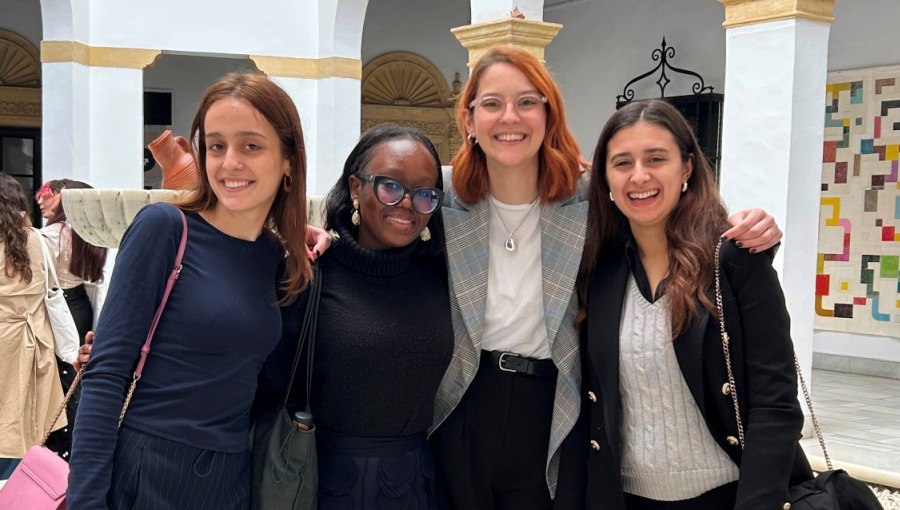Leading Imperfectly: John Cabot University Welcomes James Robilotta
John Cabot University had the honor of welcoming author, professional speaker, personal coach, emcee, and entrepreneur James Robilotta on June 11 as a guest of the Office of Community Service, Religious Life and Multiculturalism.
In July of 2015, Robilotta published his first book, Leading Imperfectly: The value of being authentic for leaders, professionals, and human beings. As a professional speaker on college campuses, Robilotta manages to make audiences laugh while stimulating them to think critically about real leadership, authenticity, and the importance of vulnerability.
Robilotta’s talk was received with great enthusiasm by JCU students and faculty. He invited his audience to think about important questions such as:” What are the qualities of true leaders? How can we help each other create deeper human connections, and what can we do to become better versions of ourselves?” He pointed out that one of the most important steps to becoming authentic individuals and leaders is recognizing that growth comes from accepting imperfections rather than pursuing perfection.
James also emphasized a few keywords to keep in mind when embarking on the journey to self-discovery and self-improvement: an authentic leader should be purposeful, because success does not come with fame and status, but rather with the passion and the commitment we have for what we do.
According to Robilotta, we should also recognize that true leadership lies in pushing others to face their fears, get out of their comfort zone, and become leaders themselves – therefore, empowering others rather than just pulling them blindly. One can only be authentic by owning who they are: Robilotta argues that owning who we are is among the hardest and yet most liberating things one can achieve through working on our inner world and becoming unafraid of judgment – which eventually allows us to be real. An authentic leader is real, meaning that he or she does not lead by only showing the “perfect” side, but also the darker, imperfect sides because those are, essentially, what make us all human. Becoming real can also be a vessel for showing vulnerability, and therefore connecting more profoundly with others.
In conclusion, an authentic leader should find his or her morals and stick to them, trying to act from a place of gratitude and integrity.
James’ talk was followed by a Q&A session, during which both students and faculty asked questions about the importance of authentic leadership, in academic and political settings, as well the role individuals play in encouraging meaningful human connections.






